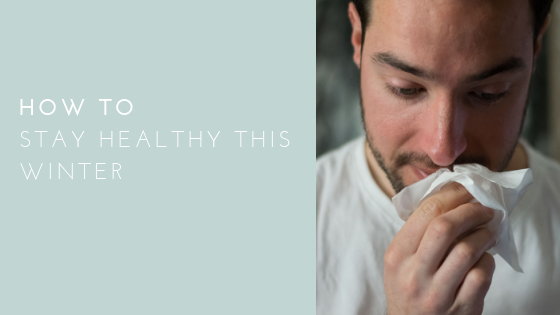Winter is cold and flu season, so it’s important for everyone to know how to protect themselves from getting sick. While there’s no foolproof way to avoid coming down with a bug this winter, these simple tips will help reduce the odds.
Get a flu shot
Flu shots don’t provide 100 percent protection against the flu, but they’re a lot better than nothing at all. The CDC recommends that most adults and children over the age of six months get a flu shot every year. For people who work in busy environments, such as offices and hospitals, it’s especially important to get vaccinated against the flu. It’s best to get a flu shot early in the season. However, getting vaccinated anytime during the winter will still provide some protection.
Eat a healthy diet
For many people, winter is when comfort food cravings strike. It’s not a good idea to give in to temptation too often, though. Eating too much sugary or refined food represses the immune system and increases a person’s likelihood of getting sick. Focus on eating plenty of immune-boosting fruits and veggies, and fill up on fiber instead of processed carbs.
Avoid picking up germs whenever possible
Communal surfaces like doorknobs tend to harbor lots of germs during flu season. Getting too close to a person who is sick can also lead to picking up an infection. Avoid getting up close and personal with anyone who’s coughing, sneezing, or sniffling this flu season, and make a habit of disinfecting shared surfaces on a regular basis. Frequent hand-washing is also an effective way to get rid of germs before they can cause illness.
Remember to work out
Exercise might not sound appealing when it’s below freezing outside, but it’s still important to work out during the winter. A vigorous sweat session boosts immune function and has a positive effect on mental health. People who usually exercise outside can try switching to indoor workouts for the winter if that’s more comfortable for them.
Get enough sleep
Sleep deprivation is bad for a person’s immune system, mood, and productivity. Use the dark, cold nights of winter to catch up on shut-eye. Most adults should aim for seven to eight hours of sleep a night.
